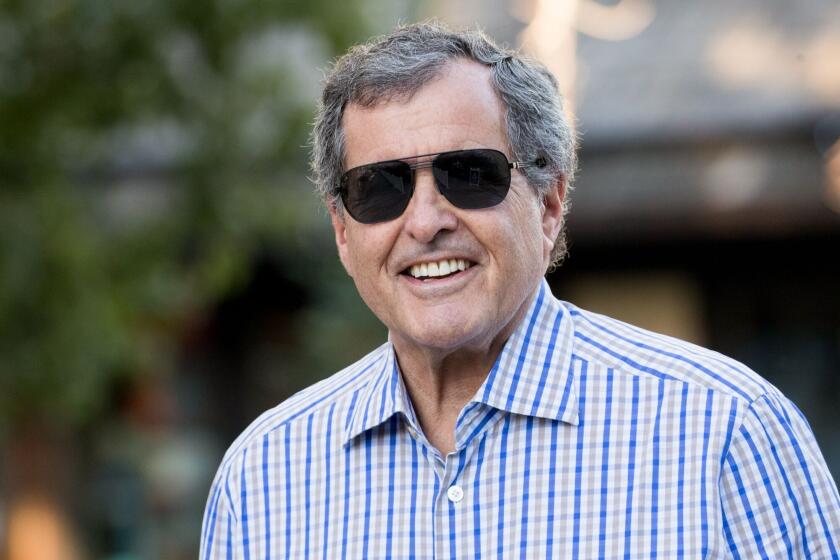United Wins Round in Fight to Keep Asian Route
- Share via
WASHINGTON — A Department of Transportation law judge said Friday that there was “no public interest reason” to yank the Seattle-Tokyo air route from United Airlines and recommended that applications by American and Continental airlines to take over the route be rejected.
The department now has 90 days to reach a final decision in the bitter dispute over the route flown by United since 1983.
Judge Burton Kolko said that if United were to be replaced on the route, he would recommend that American take its place, but Kolko said he could find no reason to do so.
“The only calls for United’s removal are from those who would profit in its stead,” Kolko said. “If United is deficient in meeting passengers’ needs . . . then it has managed to fool a lot of people.”
While conceding that both American and Continental could “operate profitably on this route,” Kolko said United had a proven record of successful operation of the route.
Can’t Understand Decision
“With this decision from Judge Kolko, we are confident that the Department of Transportation will rule in our favor and allow United to keep this route in which we have invested heavily over the past 21 years,” said Stephen Wolf, United president, chairman and chief executive.
Kolko said that United had strong support from the Seattle community and elected officials and its connecting route network in both the Far East and domestically was broader than the other two airlines.
Robert L. Crandall, American’s chairman and president, said Kolko’s decision was “antithetical to the U.S. national interests.”
“We simply cannot understand why the law judge--despite the fact that DOT has repeatedly called for competition in the Pacific from several West Coast hubs by multiple U.S. carriers--would recommend leaving all three West Coast gateways in the hands of a single airline,” Crandall said.
Kolko said that even though some “pooh-pooh” the importance of United’s other routes in Asia “it is a major public interest matter” for those traveling to the Far East.
Kolko rejected arguments from both Continental and American that the lower fares they planned to introduce would increase competition.
“Only the most Pollyanish can believe that the fare proposals in this case will ever see the light of day,” Kolko said, adding that because of Japanese resistance to lower fares the proposals from American and Continental were “pie-in-the-sky.”
Unfair to Lose Route
Kolko also dismissed statements from the other airlines that United had tried to “blackmail” Seattle officials and the department into supporting its effort to retain the route by threatening to scale back operations at Seattle-Tacoma International Airport if it wasn’t successful.
“It is clear that this community wants United for reasons that transcend ‘route case blackmail,’ ” Kolko said.
During hearings before Kolko earlier this year, Wolf said it would be unfair for the department to strip his airline of the route after it spent years trying to acquire it, sunk millions of dollars into developing it and at a time when it was just becoming profitable.
Crandall told Kolko that United, which also flies between Los Angeles and Tokyo, and San Francisco and Tokyo, wanted to retain the Seattle route just to block other airlines from gaining a foothold in the Far East market.
Crandall said that if American were awarded the route, it would expand aggressively into Asian markets and was committed to building a new hub at Sea-Tac at a cost of between $100 million and $150 million.
United had previously warned that it would have to cancel its Seattle-Hong Kong route if it lost the Tokyo route and transfer many of its 3,000 workers based at Sea-Tac.
A $20-million United expansion at Sea-Tac was also put on hold pending a decision on the route.
Continental Chairman Frank Lorenzo told Kolko that his airline was prepared to introduce vigorous price competition into the Pacific market if it was awarded the Seattle-Tokyo route including one-way fares as low as $299.
More to Read
Inside the business of entertainment
The Wide Shot brings you news, analysis and insights on everything from streaming wars to production — and what it all means for the future.
You may occasionally receive promotional content from the Los Angeles Times.










